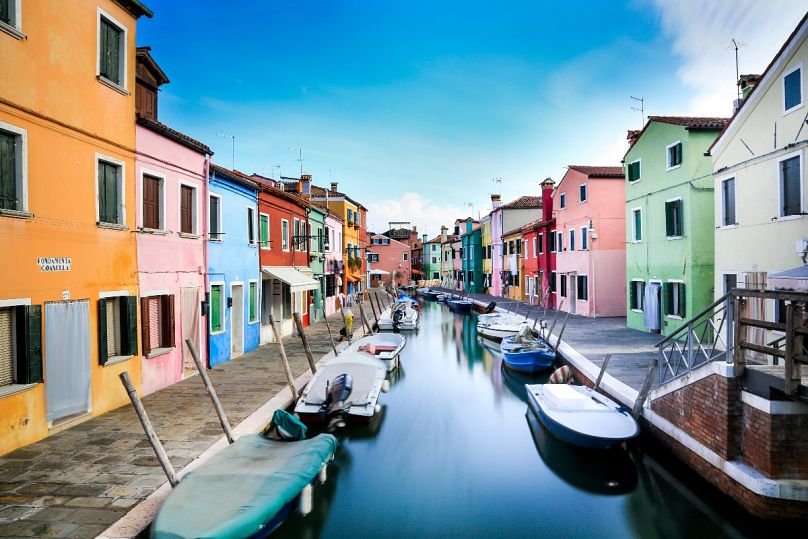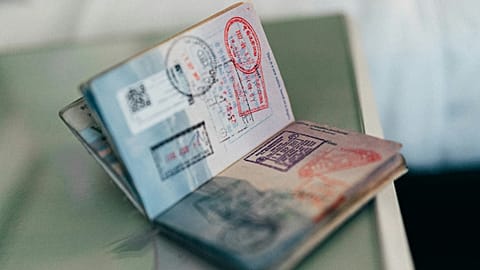Dreaming of living in Italy full-time? Here's how you can make it a reality with the newly-launched digital nomad visa.
Italy is one of the world’s favourite holiday destinations. But now, with millions of people no longer required to stay in the office, the Mediterranean country is becoming a favourite for digital nomads - those who work outside of their home countries and change location frequently.
Until now, there has been no way for digital nomads to work legally in Italy long-term.
However, a new visa for remote workers was signed into Italian law on 28 March 2022, as is now effective as of 4 April.
Back in 2022, Euronews Travel spoke to global mobility expert Damien O’Farrell, who has been helping people move to Italy for over 30 years.
Along with his insights, here’s everything you need to know about the visa for those dreaming of Italian life.
Who can apply for an Italian digital nomad visa?
Digital nomad visas are typically designed to benefit all remote workers. However, the Italian visa differs in that “it’s being managed under article 27 of the immigration code, which means that it’s aimed at highly skilled workers,” Damien explains.
The decree from the Italian government defines a digital nomad as a citizen of non-EU states “who carries out a highly qualified work activity with the use of technological tools capable of allowing them to work remotely, both as a worker self-employed or as a collaborator or employee of a company even if not resident in Italy.”
In 2022, it was unclear who qualified as a ‘highly skilled worker’, but we have a little more clarity now and that definition has shifted somewhat.
As of March 2024, it’s been announced that the visa is open to workers who have an annual income of at least three times the minimum level required for exemption from participation in healthcare costs in Italy. That figure equals out at just under €28,000 annually.
Health insurance appears to be the most important requirement of acceptance, with individuals needing to take out robust plans valid for the entire period of their stay.
Those applying must prove they have suitable accommodation for the length of their stay and that they have been a digital nomad or remote worker elsewhere for at least six months previously.
They will need to go to a valid diplomatic-consular office and submit a declaration signed by their employer before any visa will be granted.
Not everyone can apply, though. It’s advised that people who have been convicted of a crime within the last five years, even with a non-definitive sentence, will be automatically rejected from the visa process.
How long will Italian digital nomad visas last?
In 2022, former Five Star Movement politician Luca Carabetta - an advocate of the digital nomad visa - indicated that a visa would last one year in the first instance.
As of this week, that figure has been confirmed.
The permit given will read: "digital nomad - remote worker" and will be valid for a period not exceeding one year. It can be renewed annually, but only if the conditions and requirements that allowed it to be issued persist.
It’s only to be given to those with "advanced technological means", suggesting it’s only suitable for people able to work remotely from Italy.
If a digital nomad wishes to bring family members with them, that’s permitted too - but with some caveats.
Italy’s police headquarters have the final word on whether a residence permit for family reasons can be given.
How will taxation work for digital nomads in Italy?
Applicants must be tax compliant in Italy before applying for the visa. Most frequently, the Italian taxation office will need to speak to their equivalent in the country the applicant hails from.
Damien’s advice is to speak to an Italian tax expert before you apply so that you understand what tax you’ll need to pay and the associated paperwork.
If tax violations occur, the office will immediately direct the contravention to the authority that originally issued the visa.
The bottom line? Based on the information that’s been made public so far, you’re going to have to meet a long list of requirements to get one of Italy’s digital nomad visas.
When will the Italian digital nomad visa be available?
As of 4 April, applications are now being accepted for Italy's digital nomad visa.
Those interested need to book an in-person appointment at an Italian consulate in their country of residence.
You are required to bring documentation including a valid passport, proof of employment, proof of income, health insurance, proof of accommodation in Italy and a criminal record certificate.
Once your visa is approved, you have eight days from your arrival in Italy to apply for a residence permit, also known as permesso di soggiorno.
Current visas for remote workers in Italy
There are also other visas available which might be suitable, depending on your situation. Full details on these are available here.
They come under ‘decreto flussi’ (foreign worker quota) and details of them make positive reading for future digital nomads. As is the case with current visas, it appears there will be no limit on the number of permits issued annually for prospective remote workers in Italy.
Watch the video above from August 2022 to learn more about the Italian digital nomad visa.





















